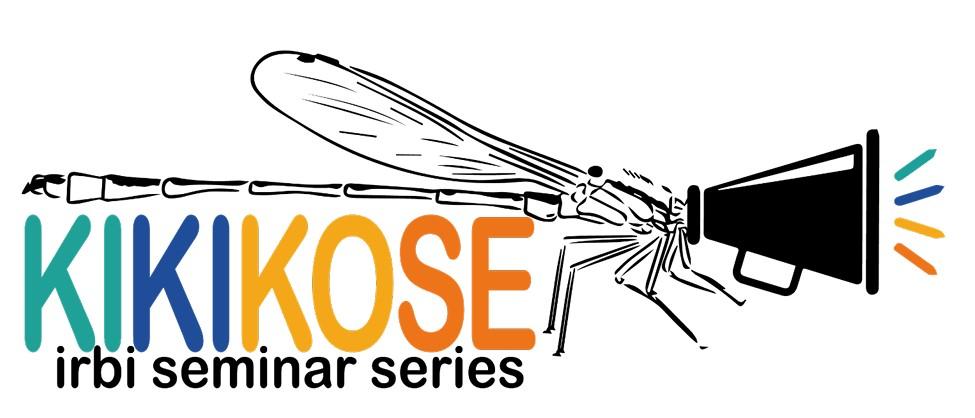Date(s)
le 29 mai 2024
14h30
Lieu(x)
Amphithéâtre A30 (bâtiment de pharmacie)
"Contribution du microbiote intestinal au déroulement des infection chez les lépidoptères" "Contribution of the intestinal microbiota to infection progression in Lepidoptera"
Cette thèse explore l’impact des interactions entre alimentation, microbiote intestinal et pathogènes sur l'hôte. Ensemble ou séparément, ces facteurs affectent la santé des insectes, qui est importante pour l'élevage de masse et le contrôle biologique. Le microbiote intestinal (MI) des chenilles est naturellement peu diversifié, et change en fonction de l‘alimentation, de l'environnement et des infections. Nous avons examiné comment les régimes artificiels à base de germe de blé ou de luzerne affectent la croissance et la survie de Spodoptera exigua, et si cela est dû à la modulation du MI. Nous avons montré que le milieu luzerne, plus riche en fibres, stimule la croissance et modifie le microbiote intestinal métaboliquement actif en favorisant la croissance de Rhodococcus. De plus, nous avons testé l’effet d’Enterococcus mundtii sur la survie, la composition du MI et l'immunité de S. exigua lors d'une infection par baculovirus. Le MI naturel favorise l'infection par le baculovirus tandis qu'un traitement antibiotique augmente la résistance au virus par la régulation de la glovérine et de la protéine réceptrice du peptidoglycan. Enfin, les interactions symbiotiques hôte-microbe pouvant passer du mutualisme au parasitisme, nous avons investigué comment la dose et la diversité des symbiotes déterminent la nature de ces interactions chez Plutella xylostella. Le parasitisme baisse avec la dose, et la réponse transcriptionnelle de l’hôte indique un compromis entre immunité et métabolisme des nutriments. Ces connaissances éclairent la dynamique des interactions hôte-microbe, et sont cruciales pour élaborer de nouvelles stratégies pour la santé des insectes.
The main objective of this thesis was to explore tripartite interactions between diet, gut microbiota, and pathogen infection and their impact on host health. These factors can independently or jointly affect insect health, which is important for mass rearing and for biocontrol at farm level. The gut microbiota of caterpillar is naturally low in diversity, but changes with diet, environment, and pathogen infection. We examined how wheatgerm and alfalfa artificial diets affect the growth and survival of Spodoptera exigua, and if this is achieved through gut microbiota modulation. We showed alfalfa diet, which was richer in fiber than the wheat germ diet, promoted growth and changed the metabolically active gut microbiota by promoting the growth of Rhodococcus. Additionally, we tested how the native gut microbiota and Enterococcus mundtii affects survival, gut microbiota composition and immunity of S. exigua during baculovirus infection. We found that a native gut microbiota promotes baculovirus infection while antibiotic treatment increases virus resistance. Resistance is achieved through upregulation of gloverin and the peptidoglycan receptor protein. Finally, as host-microbe symbiotic interactions can shift from mutualistic to parasitic, we asked how symbiont dose and diversity determines the nature of this interaction in Plutella xylostella. Our findings demonstrate parasitism decreases linearly with dose and host transcriptional response indicates a tradeoff between immunity and nutrient metabolism and uptake. Altogether, these insights shed light on the dynamics of host-microbe interactions and are crucial for advancing strategies in insect health.
The main objective of this thesis was to explore tripartite interactions between diet, gut microbiota, and pathogen infection and their impact on host health. These factors can independently or jointly affect insect health, which is important for mass rearing and for biocontrol at farm level. The gut microbiota of caterpillar is naturally low in diversity, but changes with diet, environment, and pathogen infection. We examined how wheatgerm and alfalfa artificial diets affect the growth and survival of Spodoptera exigua, and if this is achieved through gut microbiota modulation. We showed alfalfa diet, which was richer in fiber than the wheat germ diet, promoted growth and changed the metabolically active gut microbiota by promoting the growth of Rhodococcus. Additionally, we tested how the native gut microbiota and Enterococcus mundtii affects survival, gut microbiota composition and immunity of S. exigua during baculovirus infection. We found that a native gut microbiota promotes baculovirus infection while antibiotic treatment increases virus resistance. Resistance is achieved through upregulation of gloverin and the peptidoglycan receptor protein. Finally, as host-microbe symbiotic interactions can shift from mutualistic to parasitic, we asked how symbiont dose and diversity determines the nature of this interaction in Plutella xylostella. Our findings demonstrate parasitism decreases linearly with dose and host transcriptional response indicates a tradeoff between immunity and nutrient metabolism and uptake. Altogether, these insights shed light on the dynamics of host-microbe interactions and are crucial for advancing strategies in insect health.

